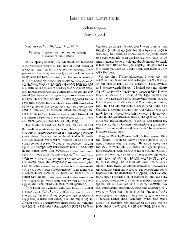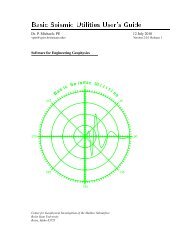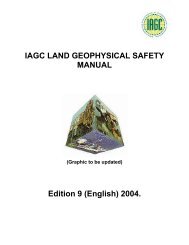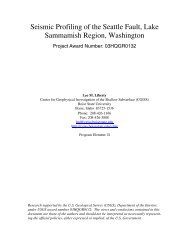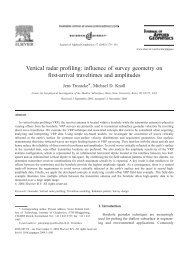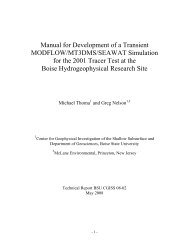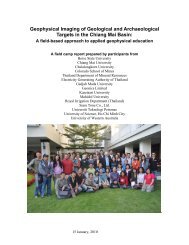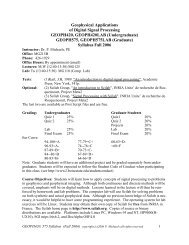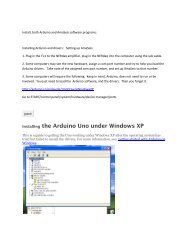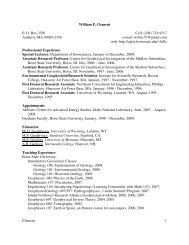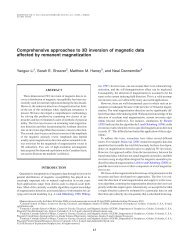Chapter 9 - Instructional Media: Chalkboards to Video - CGISS
Chapter 9 - Instructional Media: Chalkboards to Video - CGISS
Chapter 9 - Instructional Media: Chalkboards to Video - CGISS
Create successful ePaper yourself
Turn your PDF publications into a flip-book with our unique Google optimized e-Paper software.
Suggestion from a former student -- “When we fill out end-ofsemester<br />
evaluations on teachers and courses, it doesn’t do us<br />
much good. Our class is over. If we could give feedback when it<br />
might do some good – during the semester – that would be better.”<br />
Student<br />
Feedback<br />
What It<br />
Means, How<br />
<strong>to</strong> Use It<br />
How valid and reliable is student feedback Most instruc<strong>to</strong>rs,<br />
at one time or another, have asked:<br />
• Are students good judges of effective teaching<br />
• Over time do students tend <strong>to</strong> remain consistent in their<br />
judgments of effective teaching<br />
• Do students give the highest ratings <strong>to</strong> those instruc<strong>to</strong>rs from<br />
whom they learned the most or <strong>to</strong> those instruc<strong>to</strong>rs who are<br />
popular<br />
• What is the agreement between student evaluations and other<br />
qualified judges of teaching effectiveness<br />
Research for the past 15 years on student perceptions of teaching<br />
in higher education courses shows that students consistently<br />
select eight fac<strong>to</strong>rs that are important <strong>to</strong> them in rating teaching<br />
effectiveness. Students tend <strong>to</strong> remain consistent in their<br />
judgments of instruc<strong>to</strong>rs not only from term <strong>to</strong> term, but also from<br />
year <strong>to</strong> year. Student ratings of teaching effectiveness are strongly<br />
correlated with their ratings of how much they learned in a course<br />
but only moderately correlated with how much they say they liked<br />
the instruc<strong>to</strong>r. Finally, student evaluations correlate highly with<br />
ratings given by faculty peers and teaching consultants. For more<br />
information, see Kulik (2001).<br />
Effective Teaching Fac<strong>to</strong>rs<br />
The eight fac<strong>to</strong>rs of effective teaching are that the instruc<strong>to</strong>r:<br />
• Demonstrates knowledge of the subject matter.<br />
o Provides relevant subject matter<br />
o Answers questions on the subject matter<br />
o Directs students <strong>to</strong> appropriate resources for further<br />
information.<br />
• Shows enthusiasm for the subject.<br />
o Expresses overt interest<br />
o Articulates the importance of the subject matter<br />
• Is well prepared for class (clear syllabus and schedule,<br />
organized in class).<br />
o Syllabus is clearly written and formatted and has a<br />
positive <strong>to</strong>ne.<br />
o The schedule for <strong>to</strong>pics, assignments, and tests is<br />
Section: Course Evaluation/Revision 218 <strong>Chapter</strong> 14: Improving with Feedback



